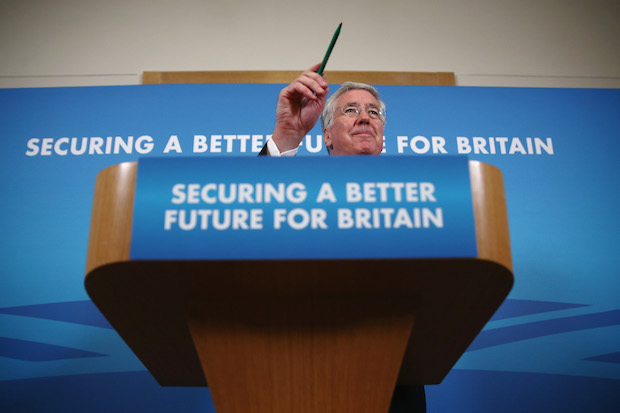It’s the Conservatives’ turn to try and bounce back today. After the ‘dead cat’ thrown onto Ed Miliband’s kitchen table, it looks as if Tories parties will be hoping to return to policy — not slashing non-doms — and move away from personal attacks. To help guide you through the melée of stories and spin, here is a summary of today’s main election stories.
1. Polls everywhere, but not a lead in sight
No fewer than five opinion polls were released yesterday, three of which showed Labour leads while two had the Conservatives ahead. The Guardian went as far to deem Thursday as ‘The day the polls turned’, but there is still no clear frontrunner at this stage. The momentum broadly appears to be with Labour — not least because Ed Miliband has overtaken David Cameron’s net approval ratings (according to Survation).
[datawrapper chart=”http://static.spectator.co.uk/tyePH/index.html”]
The situation is not so happy north of the border for Miliband. YouGov’s latest poll shows that Scotland is rapidly becoming a one party country: the SNP are on an incredible 49 per cent, while Labour are down to 25 per cent and the Tories are up to 18 per cent. After to the two televised leaders’ debates, where Nicola Sturgeon was deemed to have had a rough ride, the SNP are now three points ahead. The Labour leader has therefore decided to hop on a train to see if he can help — he’ll be appearing with Jim Murphy today to insist they will ‘never sell Scotland short’. But given his performances during the independence referendum, will Miliband’s appearance really help?
2. No two per cent commitment
The Daily Telegraph reveals that the Conservatives will not commit to meeting Nato’s target of spending two per cent of GDP on defence. The Defence Secretary Michael Fallon will make another speech today, outlining the Conservatives’ defence policy, but it appears there will be no spending commitment. From the President of the United States to all of the defence chiefs, David Cameron has been lobbied heavily to keep this commitment but to no avail. The risk now is that Britain looks foolish. As General Sir Richard Shirreff, until recently deputy commander of Nato, tells the Telegraph: ‘We will lack credibility in the eyes of our fellow members [of Nato] having trumpeted the importance of two per cent in last year’s Wales summit. If we have puffed ourselves up about how clever we are for spending two per cent, then not doing that undermines our credibility.’
Defence spending poses a tricky question for the government. At present, foreign aid, health and education spending are all ring-fenced from further cuts. If the government ring-fenced defence too, how could George Osborne possibly cut other government departments without destroying them? On the other hand, the Conservatives were traditionally the strongest party on defence and Ukip will make a great deal out of the fact they are now the only party to commit to Nato’s two per cent of spending — a direct appeal to traditional Conservative voters.
UKIP only party to commit to spending a minimum of 2% of GDP on defence and support and fully fund renewal of Britain’s nuclear deterrent
— UKIP (@UKIP) April 10, 2015
3. The Big Society, resurrected
The Big Society is back! If you assumed the grand vision of the 2010 election left Conservative HQ with Steve Hilton, you would be wrong. In an attempt to move the campaign back onto planned (and more friendly) territory, the Conservatives have announced a pledge to allow 15 million workers three days off a year for volunteering work. This would affect those in the public sector and companies with more than 250 employees. Labour are saying this is a ‘re-announcement’ from 2008.
Tory volunteering proposal isn’t only unfunded it’s not even new – DC promised it in 2008. Another broken promise pic.twitter.com/iWggpnkDGV — Labour Press Team (@labourpress) April 10, 2015
The second friendly announcement from the Tories is a pledge to freeze rail fares between 2015 and 2020, an extension of the existing cap on regulated ticket prices. This policy will save the average commuter £400 — something those hardworking families will very much appreciate. It’s another example of the Tories showing why their efforts to fix the economy are important and the benefits can now be shared. As David Cameron said, ‘Because of the difficult decisions that we have taken to repair the economy, we have been able to hold down commuter fares for the past two years. If elected in May, we would freeze them in real terms for the next five.’






Comments